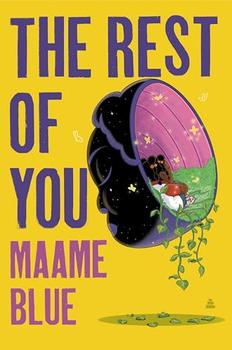Summary | Excerpt | Reading Guide | Reviews | Readalikes | Genres & Themes | Author Bio

I
The cold came late that fall and the songbirds were caught off guard. By the time the snow and wind began in earnest, too many had been suckered into staying, and instead of flying south, instead of already having flown south, they were huddled in people’s yards, their feathers puffed for some modicum of warmth. I was looking for a job. I was a student and needed babysitting work, and so I would walk from interview to interview in these attractive but wintry neighborhoods, the eerie multitudes of robins pecking at the frozen ground, dun-gray and stricken—though what bird in the best of circumstances does not look a little stricken—until at last, late in my search, at the end of a week, startlingly, the birds had disappeared. I did not want to think about what had happened to them. Or rather, that is an expression—of politeness, a false promise of delicacy—for in fact I wondered about them all the time: imagining them dead, in stunning heaps in some killing cornfield outside of town, or dropped from the sky in twos and threes for miles down along the Illinois state line.
I was looking in December for work that would begin at the start of the January term. I’d finished my exams and was answering ads from the student job board, ones for “childcare provider.” I liked children—I did!—or rather, I liked them OK. They were sometimes interesting. I admired their stamina and candor. And I was good with them in that I could make funny faces at the babies and with the older children teach them card tricks and speak in the theatrically sarcastic tones that disarmed and en?thralled them. But I was not especially skilled at minding children for long spells; I grew bored, perhaps like my own mother. After I spent too much time playing their games, my mind grew peckish and longed to lose itself in some book I had in my backpack. I was ever hopeful of early bedtimes and long naps.
I had come from Dellacrosse Central, from a small farm on the old Perryville Road, to this university town of Troy, “the Athens of the Midwest,” as if from a cave, like the priest-child of a Colombian tribe I’d read of in Cultural Anthropology, a boy made mystical by being kept in the dark for the bulk of his childhood and allowed only stories—no experience—of the outside world. Once brought out into light, he would be in a perpetual, holy condition of bedazzlement and wonder; no story would ever have been equal to the thing itself. And so it was with me. Nothing had really prepared me. Not the college piggy bank in the dining room, the savings bonds from my grandparents, or the used set of World Book encyclopedias with their beautiful color charts of international wheat production and photographs of presidential birthplaces. The flat green world of my parents’ hogless, horseless farm—its dullness, its flies, its quiet ripped open daily by the fumes and whining of machinery—twisted away and left me with a brilliant city life of books and films and witty friends. Someone had turned on the lights. Someone had led me out of the cave—of Perryville Road. My brain was on fire with Chaucer, Sylvia Plath, Simone de Beauvoir. Twice a week a young professor named Thad, dressed in jeans and a tie, stood before a lecture hall of stunned farm kids like me and spoke thrillingly of Henry James’s masturbation of the comma. I was riveted. I had never before seen a man wear jeans with a tie.
The ancient cave, of course, had produced a mystic; my childhood had produced only me.
In the corridors students argued over Bach, Beck, Balkanization, bacterial warfare. Kids said things to me like “You’re from the country. Is it true that if you eat a bear’s liver you’ll die?” They asked, “Ever know someone who did you-know-what with a cow?” Or “Is it an actual fact that pigs won’t eat bananas?” What I did know was that a goat will not really consume a tin can: a goat just liked to lick the paste on the label. But no one ever asked me that.
Excerpted from A Gate at the Stairs by Lorrie Moore. Copyright © 2009 by Lorrie Moore. Excerpted by permission of Knopf, a division of Random House, Inc. All rights reserved. No part of this excerpt may be reproduced or reprinted without permission in writing from the publisher.




People who bite the hand that feeds them usually lick the boot that kicks them
Click Here to find out who said this, as well as discovering other famous literary quotes!
Your guide toexceptional books
BookBrowse seeks out and recommends the best in contemporary fiction and nonfiction—books that not only engage and entertain but also deepen our understanding of ourselves and the world around us.